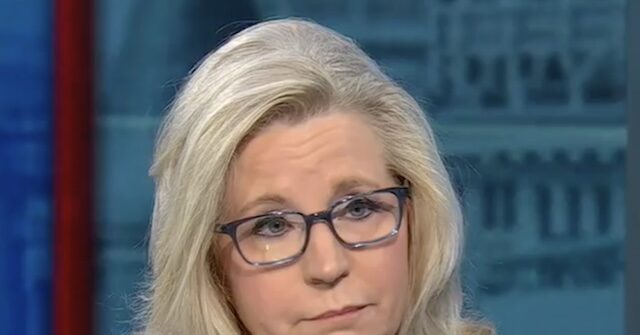Former Rep. Liz Cheney recently appeared on NBC’s “Meet the Press,” where she expressed significant concerns regarding House Speaker Mike Johnson’s capacity to uphold the constitutional process related to the certification of the 2024 presidential election. In response to a query from moderator Kristen Welker about President Biden’s uncertainty concerning a peaceful transfer of power in 2025, Cheney bluntly stated her lack of faith in Johnson’s ability to fulfill his constitutional obligations. This assertion underscores a growing apprehension among some political observers regarding the integrity of upcoming elections.
Cheney emphasized her concerns by reflecting on Johnson’s actions during the tumultuous events surrounding the 2020 presidential election. She claimed that he was fully aware of the falsehoods propagated by former President Donald Trump regarding election fraud. Cheney noted that there were specific discussions where Johnson acknowledged the baseless nature of Trump’s claims. She asserted that Johnson not only understood the legal implications of his actions but was also informed by both her and the House Republican Council that his proposed actions to overturn the election results were unconstitutional.
Further highlighting Johnson’s past actions, Cheney pointed out that he signed a legal brief submitted to the Supreme Court, which contained assertions he recognized as untrue. This reinforcement of her argument illustrates her belief that Johnson has a troubling pattern of prioritizing political loyalty to Trump over adherence to constitutional principles. As a result, Cheney’s comments reflect a broader concern among critics regarding how public officials navigate the pressures of their political affiliations in relation to their constitutional responsibilities.
Cheney’s criticism of Johnson is rooted in a larger narrative about the challenges faced by democratic institutions in the United States. Her remarks resonate in a political climate marked by increasing polarization and doubts about electoral integrity. As the nation approaches the next presidential election, there are growing fears among some political leaders and analysts that the integrity of the electoral process may be compromised, particularly if individuals in key positions of power display a lack of commitment to upholding democratic norms.
The question of ensuring a peaceful transfer of power is fundamental to the functioning of democracy. Cheney’s assertion highlights the critical importance of having leaders who are willing to prioritize the rule of law over party allegiance. Her candid commentary serves as a warning to the American public about the potential risks posed by political figures who may not fully embrace their constitutional duties. By voicing her skepticism regarding Johnson, Cheney calls attention to the essential role that accountability plays in maintaining the health of democratic institutions.
In summary, Liz Cheney’s statements about House Speaker Mike Johnson reveal a deep-seated concern regarding the commitment of some Republican leaders to fulfill their constitutional obligations, particularly in the context of the upcoming presidential election. Her reflections on Johnson’s past decisions serve as a cautionary tale about the interplay between political loyalty and adherence to democratic principles. As the nation prepares for the 2024 election, her comments invite broader discussions about the future of American democracy and the need for leaders who will uphold the integrity of the electoral process.

